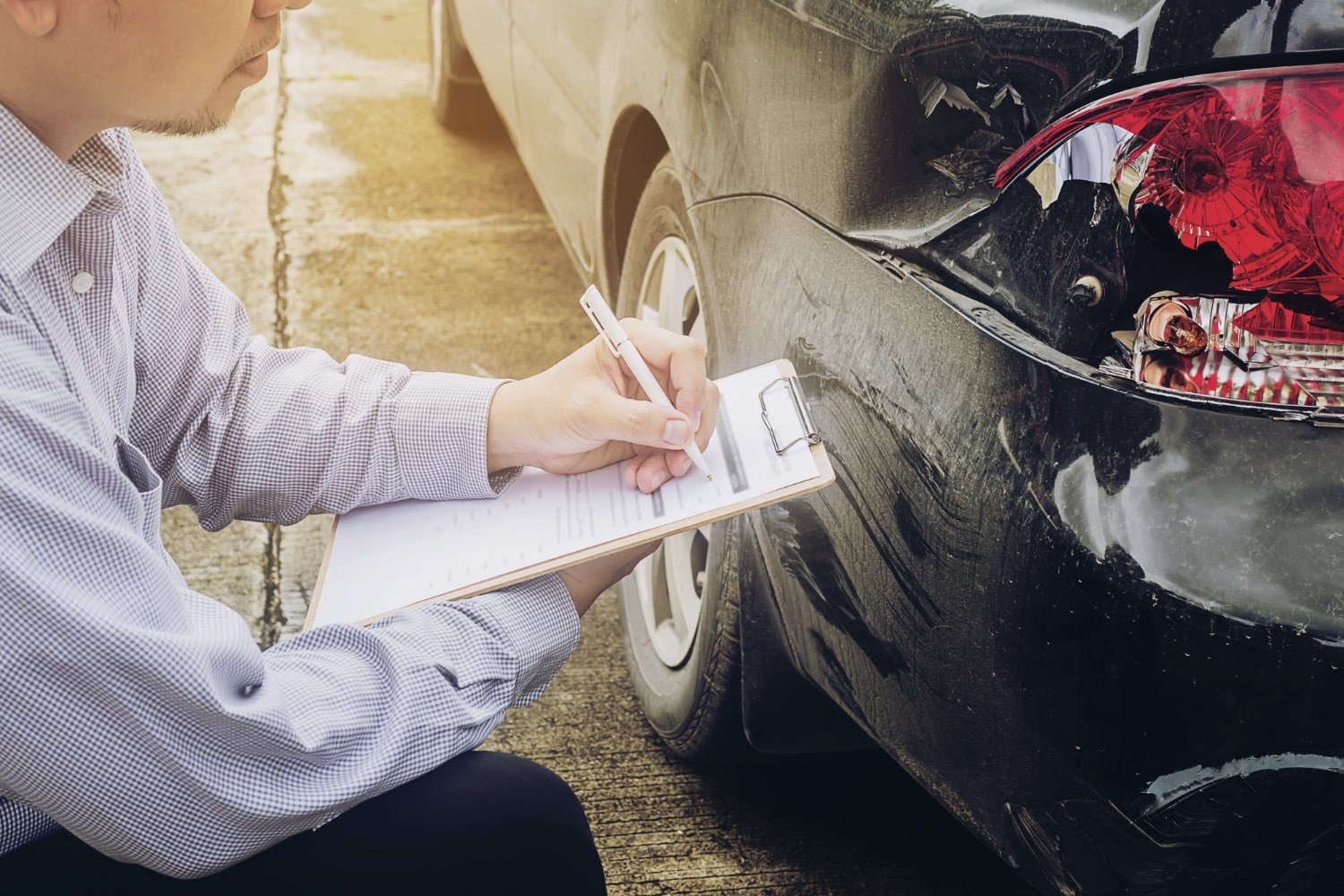
The Crucial Period: How Long After Car Accident Can You Claim Injury?
Understanding the legal window of opportunity for submitting an injury claim is one of the victims' top concerns following an automobile accident. Getting to the bottom of this question is important because it affects not only the length of time you can legally seek compensation for your injuries but also the severity of your injuries and state laws in particular.
Your claim's likelihood of success can be greatly impacted by your ability to handle this timeframe. In an effort to clarify these nuances, this article offers crucial advice to individuals involved in auto accidents who are pursuing just compensation for their losses and injuries.
Statute of Limitations: An Understanding
The statute of limitations is crucial in figuring out how long after car accident can you claim injury. In law, this phrase designates the longest time frame after an incident for which a lawsuit can be filed. According to the state and the particulars of the case, the statute of limitations varies greatly in the context of auto accidents and personal injury claims.
There are state-specific statutes that specify how long after car accident can you claim injury. Two years, for example, may be permitted in some states, but three years or longer may be permitted in others. It is important to realize that this period starts from the date of the accident or, depending on the situation, from the date the injury was or should have been reasonably discovered.

This fluctuation emphasizes how crucial it is to get legal counsel as soon as possible following an automobile collision. Regardless of how serious the injuries were, the right to pursue compensation may be lost if a claim is not brought within the allotted time. Anyone involved in a car accident has to be aware of the particular deadlines and laws in their state to guarantee they don't miss this crucial window for taking legal action.
Elements Affecting the Documentation Deadline
The question of "How long after car accident can you claim injury?" is directly impacted by a number of important factors that determine when it is appropriate to file an injury claim following an automobile accident. These elements can drastically change the amount of time a victim has to take legal action to receive compensation, so it's important to understand them.
Severity of Injury: The severity and extent of injuries in a car accident can impact when a claim must be filed. After the accident, more serious or intricate injuries might not always be fully visible. The statute of limitations may be extended in certain situations to take into consideration the time it took to realize the full extent of the injuries.
When an injured party discovers or should have reasonably discovered their injuries, it is referred to as "discovery of harm." The signs of an injury might not appear for a long time after the incident in certain cases. The date the injury is discovered, as opposed to the accident date, may mark the start of the statute of limitations.
State Laws: Personal injury lawsuits are subject to laws and rules in every state. The time limit within which a claim must be filed after an automobile accident is set forth by these laws. Understanding the particular statute of limitations in your state is essential, as it establishes the time frame within which you can file a lawsuit.
The Statute of Limitations: It may be tolled or temporarily suspended in certain situations. These include situations where the defendant is not a resident of the state, the injured party is a minor, or there is mental incapacity. The period for submitting a claim may be extended as a result.
Ultimately, there is no one-size-fits-all approach to the timing of injury claims following a car accident. The degree of harm, when harm is discovered, and state laws all play a role in this. In order to grasp these subtleties and make sure the proper deadlines file their claims, victims should speak with legal professionals.
Medical Records: Their Significance
It is important to remember how important it is to seek emergency medical attention and meticulously record all related treatments. Your health and your legal claim depend on this medical documentation.

Medical Evaluation: Even if injuries appear to be minor, it is imperative to seek immediate medical attention following a car accident. While internal trauma or whiplash may not cause symptoms right away, they can still have long-term health effects. Recovery results may be greatly impacted by early diagnosis and treatment.
Evidence in Court: In personal injury cases, medical records serve as verifiable proof. A comprehensive description of the wounds received, the necessary medical care, and the possibility of long-term health problems are given. There is clear evidence in this file linking the injuries reported to the accident.
Influence on Claims Timeline: How quickly you seek medical attention following a car accident can have an impact on how quickly you file an injury claim. One may mistakenly believe that if medical attention is delayed, it means the injuries are not serious or have nothing to do with the accident. The timeframe within which you can successfully claim injury may be impacted by this, which can complicate the claims process.
Continuity of documentation: It's critical to get medical help right away and keep a running log of all the treatments and consultations you receive related to the accident. Physical therapy sessions, follow-up appointments, and any other treatments fall under this category. Proper documentation of medical events helps create a clear chronology of events and recovery, which enhances the claim's legitimacy.
To sum up, filing an injury claim following a vehicle accident depends heavily on prompt and comprehensive medical documentation. Your ability to successfully claim injury and the length of time after the accident is directly impacted by the legal foundation it provides and the appropriate health management it guarantees.
What You Should Do Right Away Following an Accident
Your ability to successfully claim injury in the immediate aftermath of a car accident can be greatly impacted by the actions you take. The question of "How long after car accident can you claim injury?" must be answered by taking these steps in order to establish a strong foundation for your claim.
Seek Medical Assistance: Your health ought to be your top concern at all times. Certain injuries, such as internal bleeding or concussions, may not be immediately apparent, even if you feel fine. It is imperative for your health and claims that you receive prompt medical attention to guarantee that your injuries are properly assessed and documented.
Call the police right away to report the accident. The police report is essential documentation offering an official narrative of the mishap. Establishing the incident's facts with the help of this report can be crucial when submitting your injury claim.
Record the Indication: At the accident scene, gather as much information as you can. In addition to obtaining witness contact information, this entails taking pictures of the involved cars, the accident scene, and any obvious injuries. Your claim may depend heavily on these pieces of evidence.

Seek Legal Counsel: It's critical to obtain legal counsel as soon as possible. You can receive guidance through the process and assistance in comprehending the deadlines that apply in your state for submitting a claim from a personal injury claims lawyer. Along with offering guidance on how to proceed with your claim, they can help collect and preserve any necessary evidence.
Tell Your Insurance Provider: Report the accident right away to your insurance provider. Communicate carefully, and don't say anything that can be interpreted as an admission of responsibility.
You protect your health and fortify your case for a later injury claim by taking these actions as soon as possible following a car accident. Just keep in mind that the window of opportunity for filing an injury claim following an accident can have a big impact on what you do right away.
How to Submit a Claims Form on Time
One of the most important steps in filing a claim for auto insurance after an accident is knowing the legal requirements and paying close attention to detail. "How long after a car accident can you claim injury?" emphasizes how crucial it is to take action within a certain window of time. Ensure you gather the required paperwork and file your claim quickly by following this step-by-step guide:
Learn the Statute of Limitations: Knowing your state's statute of limitations is the first step. How long you can lawfully file an injury claim following a car accident is determined by this. To prevent missing the deadline, you must be aware of these time constraints.
Compile All Relevant Accident Evidence: Compile all pertinent accident evidence. This covers your car, any visible injuries, the police report, and photos from the scene of the collision. If at all possible, get in touch with any witnesses and statements for their contact information.
Medical Care: Maintain a thorough file of all the care you received after the collision. Prescriptions, physical therapy, follow-up appointments, initial emergency care, and other associated medical costs are included in this. Please provide copies of all medical records and invoices.
Document Personal Experiences: After the accident, keep a journal in which you record your own experiences. Keep a journal of the specifics of your injuries, including how they have affected your work and daily life, your daily pain levels, and your physical and emotional trauma.
Seek Legal Advice: Speak with an attorney who focuses on handling personal injury lawsuits. In addition to helping you correctly calculate your claim and make sure you comply with all legal requirements, they can offer invaluable advice on the legal process.
Prepare the Claim Documentation: gather all of the supporting evidence, including personal notes, medical records, and other pertinent paperwork, and prepare the claim documentation. Your attorney can facilitate the efficient arrangement of these documents for your claim.
Put in the Claim: File your claim for injuries with the appropriate parties, such as the insurance provider of the negligent driver and/or insurer. Ascertain that this is completed well before the statute of limitations expires.
Succession: Following the claim submission, maintain a record of any correspondence and be ready to furnish further details upon request. For updates and advice on what to do next, get in touch with your lawyer.
You can submit a prompt and well-documented injury claim after a car accident if you carefully follow these steps. Recall that the prosecution of your claim depends on you meeting the time limits imposed by your state's statute of limitations.
To sum up
It is crucial to comprehend and adhere to the timeframe for filing a claim for injuries following an automobile accident. This last step in the claim process is essential to successfully pursuing justice and compensation.
The basis of your injury claim is your comprehension of the statute of limitations in your particular state. The precise time frame that you have to take action to protect your legal rights is established by these laws. No matter how serious or legitimate your injuries were, you risk losing your right to claim if you don't file within this time frame.
The actions taken immediately following the collision, such as getting medical help, recording what happened, speaking with a personal injury lawyer, and submitting a claim on time, are also crucial to this procedure. They safeguard your physical health, offer vital proof, and set the stage for a prosperous lawsuit.
Ultimately, the window of opportunity for submitting an injury claim following a vehicle collision is a crucial one that requires quick thinking and careful consideration. You can protect your claim for damages for your losses and injuries by being aware of and following these deadline-driven requirements. It is important to keep in mind that time is of the essence when handling injury claims, and prompt action is crucial to ensuring a successful outcome from the start.
Is Mediation Legally Binding in Personal Injury Cases?
What Happens When Someone Files a Bodily Injury Claim?


